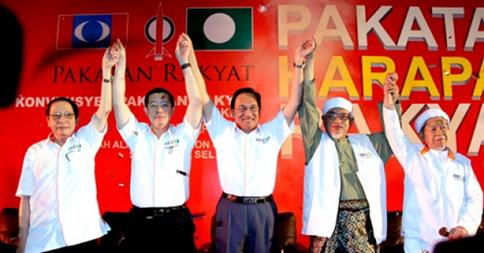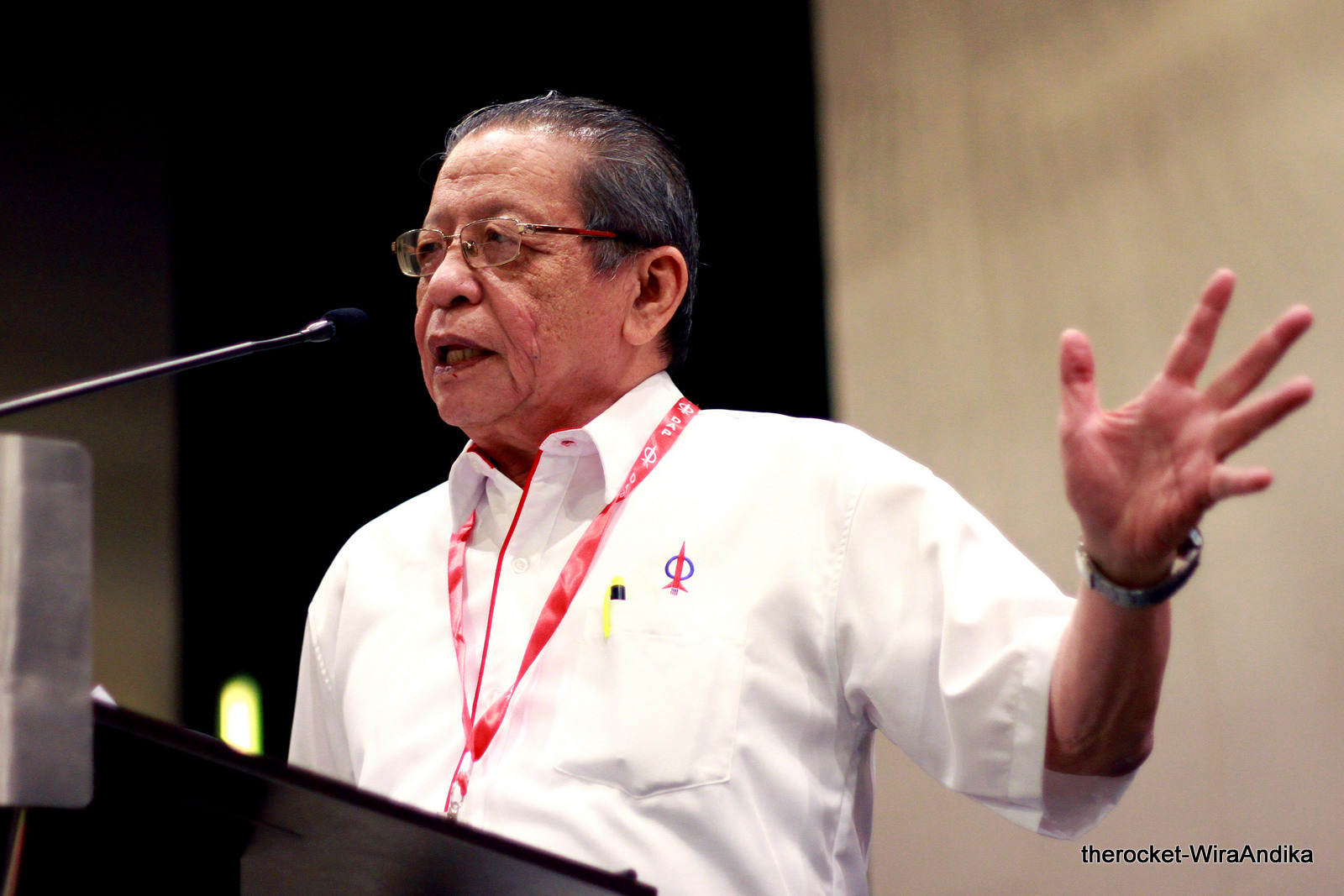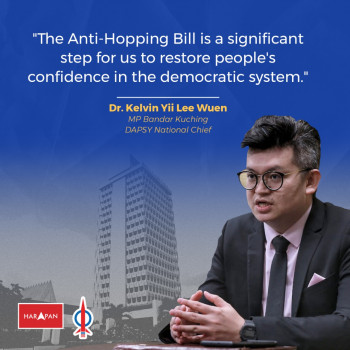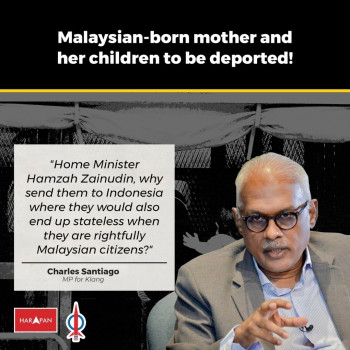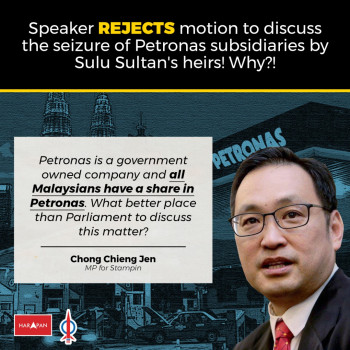Now that the PAS muktamar is over, the whispers of the political pundits for so long have come true: PAS will once again have Abdul Hadi Awang as president, and they have cut ties with DAP. Pakatan Rakyat (PR) as we know it will never be the same again.
The only question now is: What can PR do now?
Hadi, Hudud, and PAS
In a 1992 issue of The Rocket, the headline was simply “DAP opposes Hudud laws on non-Muslims.”
In the story, DAP had strongly opposed to the implementation of hudud punishment, which then-Prime Minister Mahathir Mohamad had ‘agreed’ to.
Mahathir reportedly said that BN would allow for the Federal Constitution to be amended in order to pave the way for PAS to implement hudud.
Hudud, which is a set of punishments for specific crimes under Islamic law, is not a new thing, and nor is it the first time that PAS has pushed for it to be implemented — seeing as it is a religious party with the goal to realise an Islamic state in Malaysia.
In an in-depth report by Al-Jazeera in February 2013, PAS member and chief executive of think-tank Institute of Democracy and Economic Affairs (IDEAS) Wan Saiful Wan Jan said the party’s ideology is shaped by Egypt’s Muslim Brotherhood.
“PAS is held up by the Muslim Brotherhood as a model of a successful Islamic party that can win elections and rule,” he was quoted as saying.
The report went on to say that with the increase of membership by almost double in the aftermath of Anwar Ibrahim’s incarceration in 1998, conservative elements in PAS continue to want to implement Islamic criminal code.
This has been their goal, since the day the party was formed in 1951 — making it the oldest party in Malaysia.
It bears remembering that Umno, at the time, was the invisible hand pulling the strings.
But in the past, when PAS called for hudud, it was its absolute right to do so as a Muslim party, one that focuses on religion as its core message. Other secular parties such as DAP could of course, similarly reject it.
The dynamics changed when PAS and DAP found itself on the same side circa the 12th General Elections — perhaps something that neither party could have ever predicted.
A young coalition still, PR had issues to iron out in ideology, smoothed over by its Common Policy Framework. For a time, this framework was feasible and concrete enough to see the coalition through the 2008 GE12, and subsequently the 2013 GE13.
It still is, but only if all three parties stick to it and do not renege on their word.
Go back to the start
In fact, DAP parliamentary leader Lim Kit Siang told The Rocket that the way to go forward is to, essentially, go back to the start.
In a brief interview with the Gelang Patah MP, Kit Siang said: “We can only move forward if all three parties can go back to the original principles of PR, which is the common policy framework on a whole range of social, political, environmental, economic issues which have been agreed upon.”
He added that there is a need to return to the consensus, where not one person can decide unilaterally or override another.
In this, it appears as though Kit Siang is targeting Hadi, who even within his own party has been a divisive figure, since PAS is still facing a schism that cuts right between the progressives and the conservatives factions. Now, that schism has completely separated the progressives and the conservative ulama faction — the former had been completely wiped out of top party positions save one.
“Unless we return to these original two principles, I think we will have to all crack our heads to find a new formula. As to what that is, that is still something to be thought through and worked out,” Kit Siang said.
However, Kit Siang said to fall back into the ‘Umno trap’ of racial politics is not an option.
“Right now, I think we will not allow ourselves to fall into the trap of the Umno strategists and go back to the politics of race and religion, hate and fear; we want an inclusive Malaysia with all-inclusive, all-encompassing policies regardless of race, religion or region. We want to come back together as one unit.
“We remain committed to this, but DAP alone cannot achieve this in the next electoral cycle. So it’ll have to be a coming together of like-minded political forces who can agree that this is our common policy framework,” he added.
A kink in the works
However, this coming together seems to be far away still.
PKR president Wan Azizah Wan Ismail on her first day back in Parliament on May 18, said her key agendas as opposition leader would be to reconcile the coalition through heart-to-heart talks with the leadership, and even form a shadow cabinet.
Her announcement was met with muted response from DAP secretary general Lim Guan Eng, who said the shadow cabinet would not be possible so long as the party cannot trust that a mutual consultation could be held.
Guan Eng said in two press conferences that the shadow cabinet is non-starter because of differences between DAP and PAS.
“I don’t think it is possible at this moment. If you want to talk about any distribution of portfolios at the moment, it can only be done at party level. As for the Pakatan level… while I would not say there is no possibility at all, it is just not at this moment,” he had said.
“When we took our position on the issue of hudud implementation, where there was no consultation whatsoever (between PAS and PR), we have no confidence that there will be consultation on issues of national importance,” he added.
When asked if DAP will only work for a shadow cabinet if Hadi is replaced as PAS chief, Lim simply said that Hadi would definitely be the next president of PAS, as it is “a given”, and as such, DAP stands by its position.
Nevertheless, Guan Eng conceded that DAP will be willing to work with PKR, as well as certain PAS leaders on common issues like the Sedition Act.
Otherwise, the status quo remains: DAP will not work with Hadi.
Where do we go from here?
At the time of writing, the PAS muktamar had not taken place, but now that it has concluded with the ulama faction winning almost all top posts, and PAS cutting ties with DAP, the outcome hangs in the balance.
So what happens now?
Post-BN, post-PR — what happens then?
If PR does indeed fracture, what then? And if BN topples along with its head, Prime Minister Najib Abdul Razak, what then?
The possibility of a neither BN-nor-PR situation is something which could be a game-changer. One such situation was a ‘Save Malaysia’ coalition which Kit Siang had previously proposed, comprising MPs from both sides of the divide.
The coalition is one which Kit Siang envisioned would set Malaysia on a new path, one that put aside party politics for the greater good.
“May be the time has come for a new ‘Save Malaysia’ coalition comprising MPs from both sides of the political divide and the South China Sea, to defend the constitution and rule of law with a new prime minister and a new government,” he had said.
The idea was met with lukewarm response, but if push comes to shove and Najib and Umno continues on their spiralling descent, this coalition may be the only way for Malaysia to move forward as a nation.
Yet sometimes we need to be reminded that BN as a coalition did not come by their so-called ‘unity’ easily, and PR too, would face the same trials.
BN did so solely on the dominant personality of Umno which has outstripped the MCA and MIC over the years, to the point the two are practically wiped out as viable stakeholders in the BN. The proof of this is simple: the chief of BN is always from Umno and the prime minister is always from Umno.
However, it does not work like that in PR. No one party can, or does, claim superiority over the other.
If a ‘united’ PR means one party or person has to override the others, then it is no longer the PR that 52% of the population voted for.
For now, all PR can do is reinforce its commitment to its shared goals, and keep in mind the rakyat’s best interests.
– The Rocket

